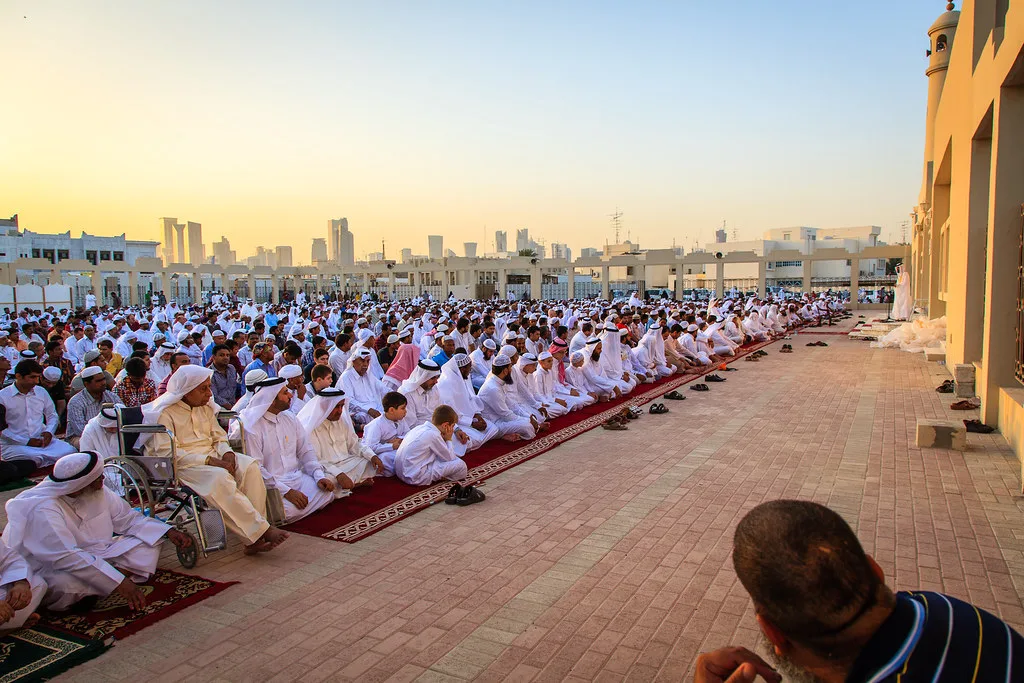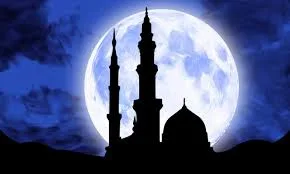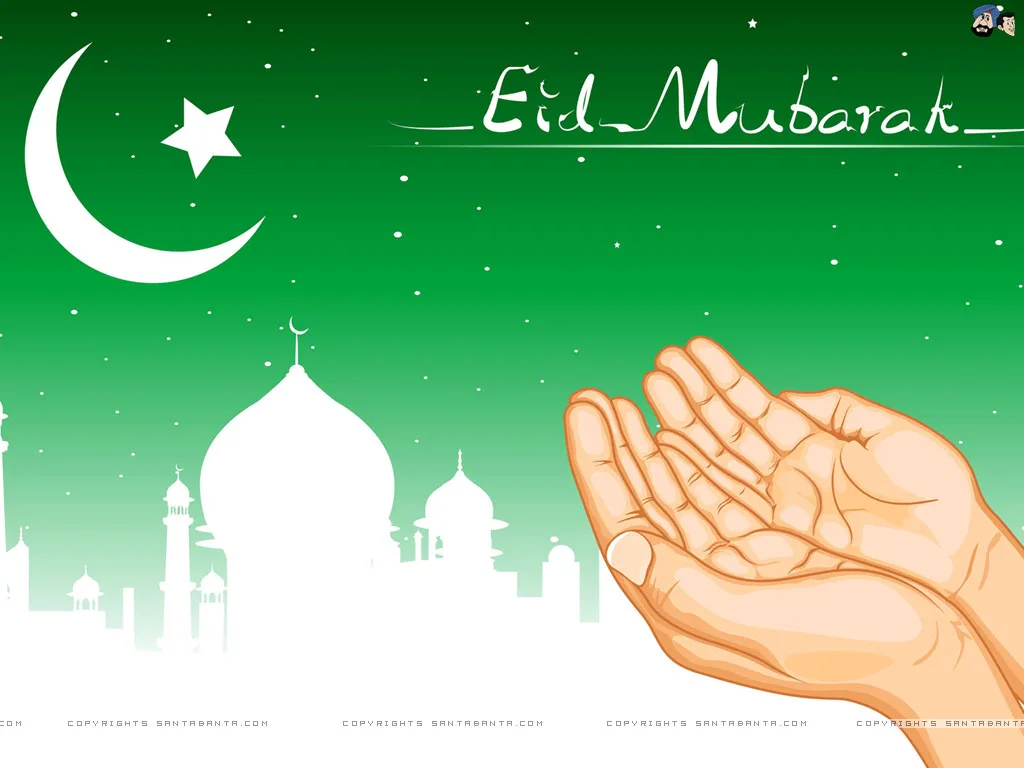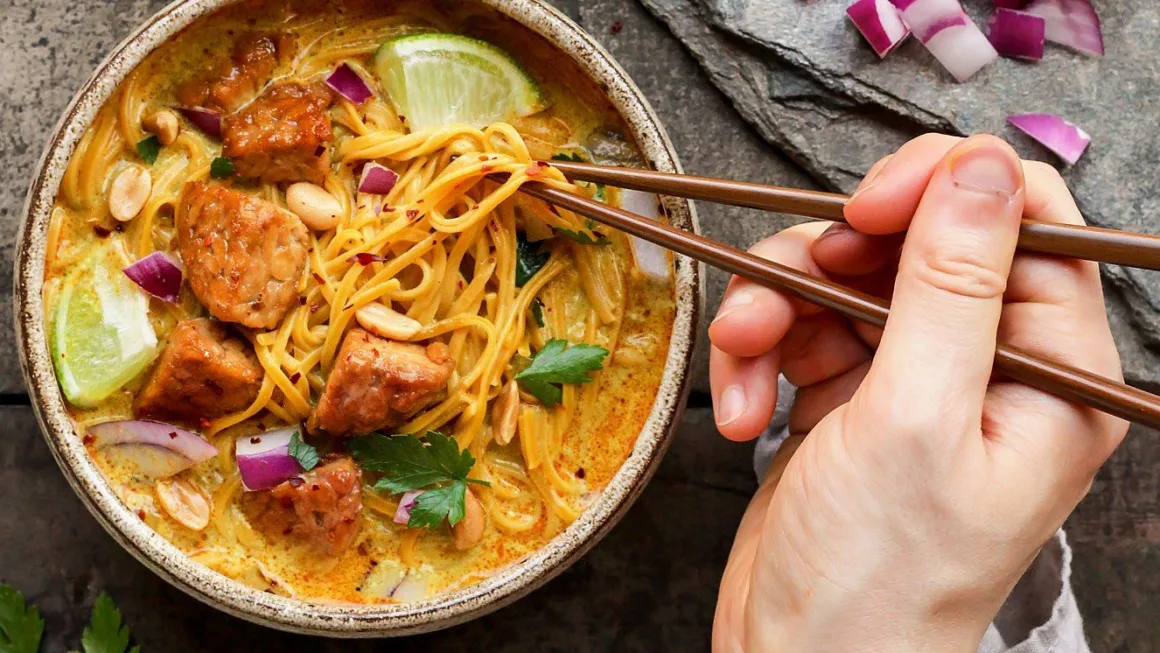Eid:
Eid, known as the festival of breaking the fast, is one of the most significant religious celebrations observed by Muslims worldwide. It marks the culmination of Ramadan, the holy month of fasting, prayer, reflection, and community. Eid is a time of joy, gratitude, and spiritual renewal, bringing families, friends, and communities together in celebration. This article delves into the rich traditions, cultural significance, and diverse celebrations associated with Eid.
The Meaning and Importance of Eid:
Eid holds profound significance in Islam, symbolizing the completion of a month-long period of fasting, self-discipline, and spiritual growth. It serves as a reminder of the importance of compassion, charity, and gratitude towards Allah (God) and fellow human beings. Eid also embodies the values of unity, generosity, and community solidarity, fostering a sense of belonging and brotherhood among Muslims worldwide.
Eid al-Fitr and Eid al-Adha:
There are two main Eid celebrations in Islam: Eid al-Fitr and Eid al-Adha. Eid al-Fitr, also known as the “Festival of Breaking the Fast,” occurs at the end of Ramadan, marking the first day of Shawwal, the tenth month of the Islamic lunar calendar. It is a day of thanksgiving, feasting, and charity, where Muslims gather for prayers, exchange gifts, and share meals with family and friends.
Eid al-Adha, or the “Festival of Sacrifice,” commemorates the willingness of Prophet Ibrahim (Abraham) to sacrifice his son Isma’il (Ishmael) as an act of obedience to Allah. It falls on the tenth day of Dhu al-Hijjah, the twelfth month of the Islamic lunar calendar, coinciding with the Hajj pilgrimage in Mecca. Eid al-Adha emphasizes the values of sacrifice, piety, and compassion, as Muslims worldwide perform the ritual of Qurbani (animal sacrifice) and distribute meat to the less fortunate.
Traditions and Customs of Eid:
Eid is characterized by a rich tapestry of traditions, customs, and rituals that vary across different cultures and regions. However, certain practices are commonly observed by Muslims worldwide during both Eid al-Fitr and Eid al-Adha:
- Eid Prayers: Muslims start the day by attending special congregational prayers held in mosques, open fields, or community centers. These prayers, known as Salat al-Eid, are conducted in the morning and consist of two Rak’ahs (units) of prayer, followed by a sermon (khutbah) delivered by the Imam.
- Zakat al-Fitr: Before the Eid prayers, Muslims are required to give Zakat al-Fitr, a form of charity aimed at purifying one’s wealth and providing for the less fortunate. This obligatory almsgiving ensures that everyone in the community can partake in the festivities and enjoy the blessings of Eid.
- Festive Attire: On Eid, Muslims adorn themselves in their finest attire, often wearing new clothes or traditional garments that reflect their cultural heritage. Dressing up is not only a form of celebration but also a way to express gratitude and humility before Allah.
- Eid Greetings: It is customary for Muslims to exchange greetings and blessings on Eid, saying “Eid Mubarak” (Blessed Eid) or “Eid Sa’id” (Happy Eid) to each other. This gesture of goodwill strengthens social bonds and fosters a sense of unity and camaraderie within the community.
- Family Gatherings and Feasts: Eid is a time for family reunions, where relatives come together to share festive meals, exchange gifts, and engage in lively conversations. Traditional delicacies and sweets are prepared to indulge in the joyous occasion, with dishes varying from region to region.
- Acts of Charity: Charity holds special significance during Eid, as Muslims are encouraged to extend a helping hand to the less fortunate. From providing food and clothing to supporting charitable organizations, acts of kindness and generosity epitomize the spirit of Eid.
Celebrating Eid Around the World:
Eid is celebrated with great fervor and enthusiasm across the globe, transcending cultural and geographical boundaries. While the essence of the festival remains the same, each region adds its unique flavor and customs to the celebrations:
- Middle East and North Africa: In countries like Saudi Arabia, Egypt, and Morocco, Eid is marked by grand feasts, elaborate decorations, and traditional folk performances. Families gather for lavish meals, exchange gifts, and visit relatives, while streets and homes are adorned with colorful lights and ornaments.
- South Asia: In countries like Pakistan, India, and Bangladesh, Eid is a vibrant affair, characterized by bustling markets, street fairs, and elaborate mehndi (henna) designs. Families prepare a wide array of savory and sweet dishes, including biryani, sheer khurma, and kebabs, to share with neighbors and loved ones.
- Southeast Asia: In Indonesia, Malaysia, and Singapore, Eid is celebrated with a blend of religious observances and cultural traditions. Muslims offer special prayers at mosques, visit graves of loved ones, and partake in communal feasts known as “open houses,” where people of all backgrounds are welcomed to share in the festivities.
- Western Countries: Muslims living in Western countries like the United States, Canada, and the United Kingdom adapt their Eid celebrations to local customs while maintaining their religious traditions. Community prayers, charity events, and multicultural gatherings serve as opportunities to foster understanding and unity among diverse communities.
Challenges and Adaptations:
In recent years, Eid celebrations have faced challenges due to various factors, including the COVID-19 pandemic, economic hardships, and social unrest. Restrictions on public gatherings, travel limitations, and financial constraints have impacted the way Muslims observe Eid, prompting them to find innovative ways to connect and celebrate safely.
Despite these challenges, the spirit of Eid perseveres, as families and communities come together to support each other, spread joy, and uphold cherished traditions. Virtual gatherings, online charity drives, and creative initiatives have emerged as alternatives to traditional celebrations, allowing Muslims to stay connected and share the blessings of Eid with others.
Also read:- https://princeblog.in/virat-kohli-centurie-powering-royal-challengers/
- Western Countries: Muslims living in Western countries like the United States, Canada, and the United Kingdom adapt their Eid celebrations to local customs while maintaining their religious traditions. Community prayers, charity events, and multicultural gatherings serve as opportunities to foster understanding and unity among diverse communities.
Challenges and Adaptations:
In recent years, Eid celebrations have faced challenges due to various factors, including the COVID-19 pandemic, economic hardships, and social unrest. Restrictions on public gatherings, travel limitations, and financial constraints have impacted the way Muslims observe Eid, prompting them to find innovative ways to connect and celebrate safely.

Despite these challenges, the spirit of Eid perseveres, as families and communities come together to support each other, spread joy, and uphold cherished traditions. Virtual gatherings, online charity drives, and creative initiatives have emerged as alternatives to traditional celebrations, allowing Muslims to stay connected and share the blessings of Eid with others.
Virtual Celebrations: With the rise of digital technology, virtual celebrations have become increasingly popular, enabling Muslims to participate in Eid prayers, family gatherings, and social events from the comfort of their homes. Video conferencing platforms, social media networks, and online streaming services facilitate virtual interactions, allowing families separated by distance to reunite and celebrate together virtually.
Online Charity Drives: In light of the economic hardships faced by many during the pandemic, online charity drives have become a vital means of supporting those in need during Eid. Muslims worldwide contribute to fundraising campaigns, food drives, and humanitarian initiatives aimed at providing assistance to vulnerable communities, including refugees, displaced persons, and marginalized groups.
Creative Initiatives: To maintain the festive spirit of Eid amidst challenging circumstances, Muslims have embraced creative initiatives such as drive-through celebrations, outdoor picnics, and neighborhood parades. These innovative approaches allow individuals to celebrate Eid safely while adhering to social distancing guidelines and health protocols.
Eid Beyond Borders: Despite the physical separation caused by the pandemic, Eid serves as a unifying force that transcends geographical boundaries and cultural differences. Muslims across the globe share their experiences, traditions, and expressions of solidarity through social media platforms, online forums, and virtual events, reinforcing the sense of global unity and brotherhood.
Looking Ahead:
As the world continues to navigate the challenges posed by the pandemic and other global crises, Eid serves as a beacon of hope, resilience, and renewal. Muslims draw strength from their faith, traditions, and community bonds to overcome adversity and build a brighter future for all.
In the years to come, Eid celebrations may evolve and adapt in response to changing circumstances, but the core values of faith, compassion, and solidarity will remain unchanged. Whether celebrated amidst grand festivities or quiet reflection, Eid will continue to inspire people of all backgrounds to come together in unity, kindness, and love.
Eid is a time of joy, gratitude, and spiritual renewal, celebrated by Muslims worldwide with fervor and devotion. From the bustling streets of Cairo to the tranquil mosques of Istanbul, Eid brings people together in prayer, feasting, and acts of charity, transcending cultural, linguistic, and geographical boundaries.
As Muslims mark the end of Ramadan and the beginning of Shawwal, they reflect on the lessons learned during the month of fasting and renew their commitment to faith, compassion, and community service. Eid serves as a reminder of the blessings bestowed upon humanity and the importance of sharing those blessings with others, especially those in need.
In a world beset by challenges and uncertainties, Eid offers a glimpse of hope, unity, and solidarity, reminding us that regardless of our differences, we are bound together by our common humanity and shared values. As we celebrate Eid, let us reaffirm our commitment to building a more compassionate, inclusive, and peaceful world for future generations to inherit. Eid Mubarak!
Eid Mubarak! (Blessed Eid!)
As the sun rises on the day of Eid, Muslims around the world awaken with hearts filled with gratitude and joy. It’s a day that marks the completion of a month-long journey of self-discipline, reflection, and spiritual growth. The fasting of Ramadan has drawn to a close, and the time for celebration has arrived.
In homes across continents, families rise early to prepare for the day’s festivities. There’s a buzz of excitement in the air as children don their finest clothes, eagerly anticipating the gifts and treats that await them. The aroma of special Eid dishes fills the kitchen, signaling the start of a day of feasting and merriment.
As the hour for Eid prayers approaches, Muslims make their way to mosques or designated prayer grounds. There’s a sense of camaraderie as neighbors greet each other with warm embraces and heartfelt wishes of “Eid Mubarak.” The air resonates with the collective recitation of prayers and supplications, as Muslims stand united in worship and gratitude.
After prayers, the real festivities begin. Families gather for lavish feasts, where traditional dishes take center stage. From savory biryanis and kebabs to decadent desserts like baklava and kunafa, there’s no shortage of culinary delights to indulge in. Every bite is savored, every moment cherished as loved ones come together to share in the joy of Eid.
But Eid isn’t just about feasting; it’s also a time for giving back to the community. Muslims are encouraged to extend a hand of charity to those less fortunate, ensuring that everyone can partake in the celebrations. From donating to local food banks to organizing charity drives, acts of kindness and generosity abound on Eid.
Throughout the day, homes are open to friends, family, and even strangers, as hospitality takes precedence. Guests are welcomed with open arms, treated to lavish spreads of food and drink, and showered with tokens of affection. The spirit of Eid knows no bounds, transcending barriers of language, culture, and religion.
As the day draws to a close, there’s a sense of contentment that settles over the community. The laughter of children echoes through the streets, the aroma of spices lingers in the air, and hearts are filled with the warmth of shared memories. It’s a day that will be remembered long after the last dish has been cleared away and the guests have departed.

But even as the celebrations wind down, the spirit of Eid lives on. It’s a spirit of compassion, unity, and gratitude that extends far beyond the confines of a single day. It’s a reminder that no matter how diverse our backgrounds may be, we are all connected by our shared humanity.
So as we bid farewell to another Eid, let us carry its spirit with us in the days and weeks to come. Let us continue to embrace the values of compassion, generosity, and solidarity that define this blessed occasion. And let us strive to make every day a celebration of the blessings we have been given and the bonds that unite us as one global family.
Eid Mubarak to all! May this day bring you peace, joy, and countless blessings.
I’m glad you’re enjoying the continuation! Let’s delve further into the significance of Eid and its enduring impact on individuals and communities worldwide.
Beyond the festivities and feasts, Eid holds a deep spiritual significance for Muslims. It serves as a time of reflection, renewal, and repentance, allowing individuals to seek forgiveness for past wrongdoings and embark on a path of spiritual growth and self-improvement. The fasting of Ramadan, followed by the celebration of Eid, symbolizes a journey of purification and enlightenment, where Muslims strive to strengthen their connection with Allah and embody the teachings of Islam in their daily lives.
Moreover, Eid fosters a sense of unity and solidarity within the Muslim ummah (community), transcending geographical, cultural, and linguistic barriers. Regardless of nationality or ethnicity, Muslims around the world come together to celebrate Eid, forging bonds of friendship and brotherhood that defy division and strife. It’s a powerful testament to the universality of Islam and the shared values that unite its followers, regardless of their background or upbringing.
Furthermore, Eid serves as a reminder of the importance of gratitude and generosity in Islam. As Muslims celebrate the blessings of Eid, they are encouraged to share their joy and abundance with those less fortunate, embodying the spirit of charity and compassion that lies at the heart of Islam. Whether through Zakat al-Fitr, Qurbani (animal sacrifice), or acts of kindness towards neighbors and strangers, Muslims are reminded of their duty to care for the vulnerable and marginalized members of society, ensuring that everyone can partake in the joy of Eid.
In addition to its religious significance, Eid plays a vital role in preserving and promoting cultural heritage and traditions within Muslim communities. From the colorful festivities of Eid al-Fitr to the solemn rituals of Eid al-Adha, each celebration is imbued with unique customs, rituals, and culinary delights that reflect the rich diversity of Muslim cultures around the world. Whether it’s the festive bazaars of Turkey, the vibrant processions of Indonesia, or the elaborate henna designs of Pakistan, Eid celebrations offer a glimpse into the vibrant tapestry of Muslim traditions and customs that have been passed down through generations.
Looking ahead, Eid will continue to serve as a beacon of hope, unity, and resilience for Muslims around the world. In an increasingly interconnected and diverse world, Eid offers an opportunity for people of all backgrounds to come together in celebration, solidarity, and mutual respect. It’s a time to set aside differences, bridge divides, and embrace the common humanity that unites us all.
As we bid farewell to another Eid celebration, let us carry its spirit of compassion, gratitude, and unity with us throughout the year. Let us strive to embody the values of Islam in our daily lives, reaching out to those in need, standing up for justice, and building bridges of understanding and empathy across cultures and communities. Eid Mubarak to all! May the blessings of Eid bring you peace, joy, and fulfillment today and always.
Conclusion:
Eid is more than just a religious festival; it is a time of spiritual renewal, cultural richness, and communal solidarity. Whether observed with grand festivities or simple gatherings, Eid embodies the universal values of compassion, gratitude, and generosity that resonate across cultures and civilizations.
As Muslims around the world celebrate Eid, they reaffirm their faith, strengthen family bonds, and extend a hand of friendship to all. In the midst of challenges and uncertainties, the spirit of Eid shines bright, illuminating hearts with hope, love, and the promise of a brighter tomorrow.
Follow On- https://www.instagram.com/royal_.princeraj/




One thought on “Embracing the spirit of Eid celebrations2024”